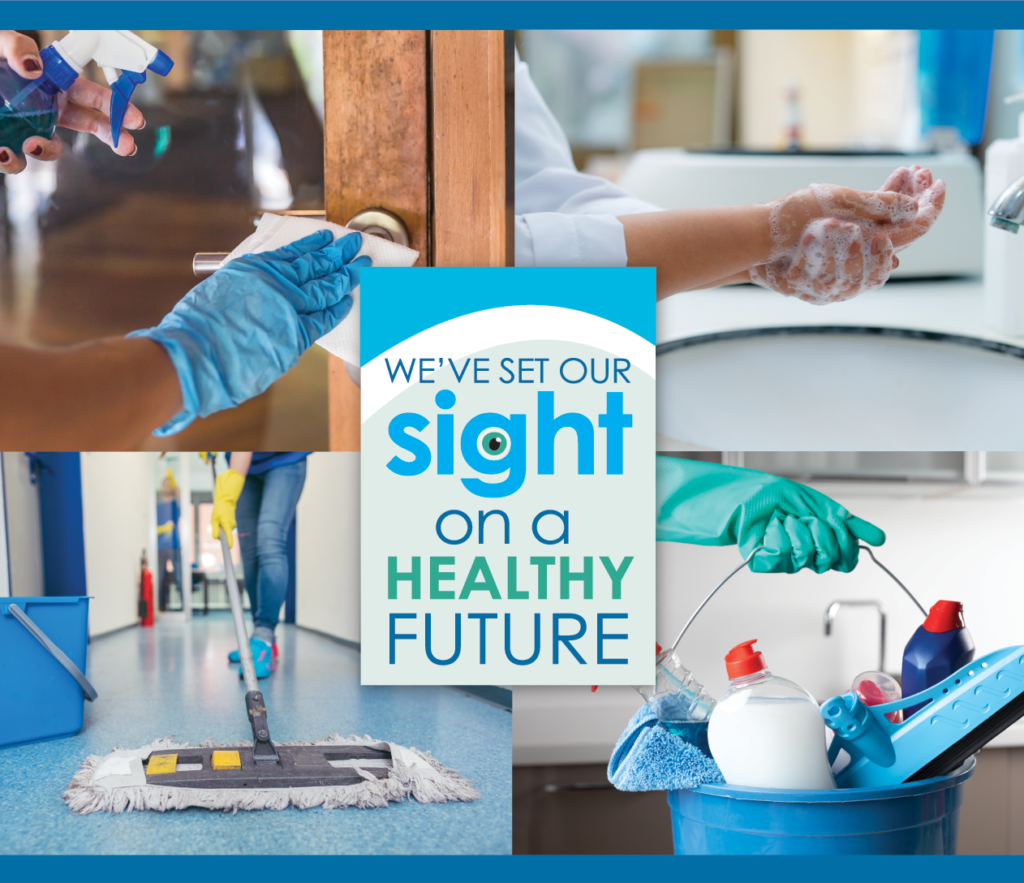COVID-19

FAQ’s
How is your office keeping patients safe?
We are following the CDC (Centers for Disease Control), AAO (American Academy of Ophthalmology), and other regulatory agencies’ guidelines daily for the safest patient protocols. We have adjusted many things in the office to help provide the cleanest and safest environment for patients and staff. Some of those include:
- Increased our frequency of medical-grade cleansing of our office furniture and equipment.
- Offering telemedicine appointments for most patients who can’t make it to the office.
- Removed all literature in the office to reduce the spread of any bacteria or virus.
Is it safe to have eye surgery during this pandemic?
Yes, every eye procedure has risks with or without a pandemic. These risks are typically very mild. We have taken the recommendations from the state, local, and government agencies along with medical societies, and our own doctors that is it safe to continue our various eye care procedures. Eye surgery should not make you more susceptible to acquiring COVID-19. Of course, we would continue to recommend that our patients follow the CDC guidelines for protecting themselves against COVID-19 after any eye surgery.
What is COVID-19?
COVID-19 is a type of coronavirus that is highly contagious and can cause a range of symptoms from no symptoms (asymptomatic), very mild symptoms, to very severe respiratory issues which can lead to hospitalization or even death. Studies show that severe cases are more common in the elderly, people with compromised immune systems, hypertension, respiratory disease, cardiovascular disease, and diabetes mellitus.
How does COVID-19 affect my eyes?
Your eyes are mucous membranes, just like your mouth or your nose. This means that it is possible to receive and transmit various bacteria and viruses through your eyes. Some studies have shown that patients with COVID-19 may present with conjunctivitis either as an early sign of infection or during hospitalization in severe cases. The CDC recommends increasing the frequency of handwashing and avoiding touching your eyes, nose, and mouth to help prevent the spread of diseases like COVID-19.
How do you get COVID-19?
COVID-19, like many other viruses, can be transmitted through airborne droplets when we sneeze or cough. It can also live for several hours on inanimate objects such as plastic, doorknobs, and your cell phone.

